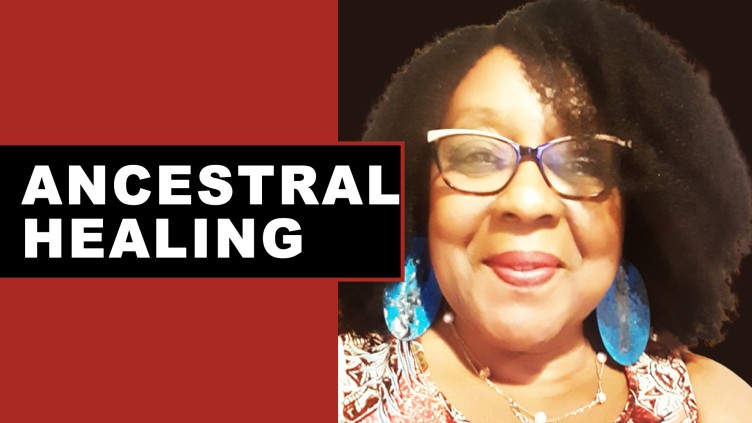The Importance Of Ancestral Healing To African Diaspora, Using The Power Of Storytelling

The journey of the African diaspora is one marked by resilience, strength, and a longing for connection to roots lost through centuries of enslavement, colonization, and displacement. Ancestral healing stands as a beacon of hope, a path towards reclamation and renewal that can empower individuals of African descent to embrace their heritage, heal historical wounds, and forge a meaningful connection with their past.
Want to learn more? Start by downloading the first chapter of The Storytelling Series: Beginners’ Guide for Small Businesses & Content Creators by Obehi Ewanfoh.
This article explores the profound significance of ancestral healing within the African diaspora, focusing on how storytelling can serve as a powerful medium to unlock its transformative potential. The article was inspired by what I have learned, interviewing Gloria Tinu Ogunbadejo, an Ancestral healing coach.
What is Ancestral Healing?
Ancestral healing is a deeply rooted and culturally significant practice that involves acknowledging, honoring, and seeking to heal the experiences, traumas, and wisdom of one’s ancestors. It is a process of connecting with the lineage that came before us, recognizing the impact of their lives on our own, and working towards healing generational wounds and imbalances.
This practice is particularly important for individuals who are part of the African diaspora, as it addresses the historical and intergenerational traumas stemming from events such as the transatlantic slave trade, colonization, and the displacement of people from their ancestral homelands.
Ancestral healing provides a means to confront and heal these deep-seated wounds while also celebrating the strength and resilience that have been passed down through generations.
Ancestral healing often involves various rituals, ceremonies, and practices that are rooted in cultural traditions. These can include storytelling, where the stories and experiences of ancestors are shared and passed down through generations. It can also encompass rituals like offering prayers or libations, engaging in meditation or reflection, creating altars to honor ancestors, and participating in community gatherings or ceremonies.
The aim of ancestral healing is to create a sense of connection and continuity between the past, present, and future. By recognizing and addressing the pain, struggles, and achievements of one’s ancestors, individuals can find a deeper understanding of their own identity and a renewed sense of purpose.
Ancestral healing also offers a way to tap into the wisdom, guidance, and blessings that ancestors may offer, creating a spiritual and emotional connection that can provide comfort, support, and a sense of belonging.
Ultimately, ancestral healing is a powerful and transformative practice that allows individuals to embrace their cultural heritage, heal from historical traumas, and cultivate a meaningful connection to their ancestors. It serves as a bridge between generations, cultures, and experiences, offering a pathway toward healing, empowerment, and personal growth. Below are some of the benefits of ancestral healing to people of African descent. Pay attention to every single one of them:
Reclaiming Identity and Cultural Roots
Ancestral healing invites individuals of African descent to embark on a transformative journey of self-discovery, providing a roadmap to reconnect with their cultural heritage. Through storytelling, ancestral experiences, struggles, and wisdom are shared across generations, fostering a profound sense of identity, and belonging.
By delving into ancestral narratives, individuals can bridge the gap between past and present, gaining a deeper understanding of their roots and culture. Through the art of storytelling, these narratives become living testaments, shaping a new narrative that celebrates the strength and resilience inherent in their lineage.
Healing Historical Trauma
The scars of the transatlantic slave trade and colonization run deep within the African diaspora, echoing through generations as historical trauma. Ancestral healing offers a unique avenue to confront and heal these wounds, using storytelling as a vehicle to acknowledge the struggles of ancestors who endured unfathomable hardships.
By sharing these stories, the pain and resilience of the past are acknowledged, creating space for healing and renewal. The act of storytelling becomes an act of defiance against erasure, honoring the experiences of those who came before while rewriting a narrative of strength and triumph.
Spiritual and Emotional Connection
African cultures have long held a reverence for ancestors, believing in their continued presence and influence in the lives of the living. Ancestral healing taps into this spiritual legacy, nurturing a profound connection between past and present.
Through storytelling, individuals can engage in a dialogue with their ancestors, seeking guidance, wisdom, and blessings. This connection transcends time and space, providing solace, support, and a renewed sense of purpose. The act of storytelling becomes a conduit through which ancestral energies are channeled, fostering a deep bond that empowers and uplifts.
Unveiling Common Threads Across Diverse Practices
Ancestral healing manifests in various forms across different African cultures and regions, yet common threads of reverence, respect, and remembrance unite these diverse practices. Storytelling, whether through oral traditions, dance, music, or visual arts, serves as a universal language that bridges cultural divides.
The power of storytelling lies in its ability to transcend linguistic and geographical barriers, creating a shared space where individuals of the African diaspora can find common ground and celebrate their shared heritage.
Reconnecting with Cultural Heritage and Reclaiming Identity
Ancestral healing rekindles a sense of pride and connection to cultural heritage, enabling individuals to celebrate their identity with authenticity and purpose. Storytelling becomes a tool to dismantle the walls erected by history, opening doors to a rich tapestry of traditions, languages, and practices.
By engaging in the act of storytelling, individuals reclaim agency over their narrative, no longer defined solely by the traumas of the past but also by the strength, wisdom, and beauty of their ancestral legacy.
Conclusion on The Importance Of Ancestral Healing To African Diaspora, Using The Power Of Storytelling
Ancestral healing holds the key to unlocking a world of empowerment, healing, and reclamation within the African diaspora. Through the power of storytelling, the past is woven into the present, creating a tapestry of resilience, identity, and hope.
As individuals of African descent embrace ancestral healing, they embark on a transformative journey that not only heals wounds but also empowers them to navigate the complexities of the present with renewed strength and a profound connection to their roots.
Storytelling becomes the bridge that spans generations, cultures, and continents, uniting the African diaspora in a shared narrative of triumph, resilience, and boundless potential.
Want to learn more? Start by downloading the first chapter of The Storytelling Series: Beginners’ Guide for Small Businesses & Content Creators by Obehi Ewanfoh.





